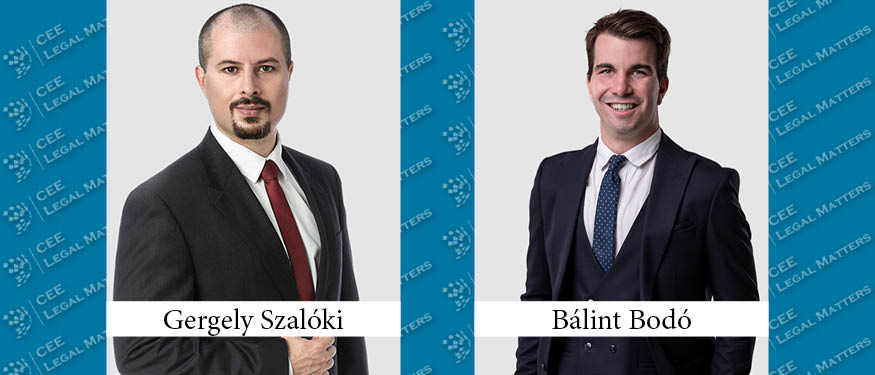Sustainability is crucial for ensuring the long-term wellbeing of the planet and future generations. It encompasses responsible practices that preserve natural resources, mitigate climate change, and promote social and economic balance, ultimately creating a harmonious and sustainable world for all.
Financing plays a pivotal role in upholding sustainability by providing the necessary resources to implement and support environmentally friendly practices and initiatives. Accessible and targeted financing enables businesses, governments and organisations to adopt sustainable practices, develop innovative solutions and mitigate the negative impact of human activities on the environment.
Moreover, financing also facilitates research and development efforts, promotes education and awareness campaigns, and fosters collaboration between stakeholders, all of which are crucial for achieving long-term sustainability goals.
Sustainable financing
Green loans
A "green loan" is specifically designed to finance projects or activities that have positive environmental impacts. It provides funding for projects focused on:
- renewable energy;
- energy efficiency;
- pollution prevention;
- sustainable transport; or
- other environmentally friendly initiatives.
The borrower is typically required to use the loan proceeds exclusively for eligible green projects and may need to provide periodic reporting on the environmental impact of the funded activities.
Social loans
A "social loan" is geared towards financing projects or activities that generate positive social outcomes. It aims to address social issues such as:
- poverty alleviation;
- healthcare access;
- affordable housing;
- education; or
- community development.
The borrower utilises the loan funds to support projects that have a demonstrable social impact. They may be required to report on the progress and effectiveness of their social initiatives.
Sustainability-linked loan
A "sustainability-linked loan", on the other hand, is a broader financing instrument that incentivises borrowers to achieve predetermined sustainability performance targets. Unlike green loans and social loans, the use of proceeds is not restricted to specific green or social projects. Instead, the borrower's interest rate or other loan terms are linked to the achievement of pre-agreed sustainability performance targets.
As a result, the proceeds may be used to finance any kind of business activities that the borrower is pursuing, regardless of whether they are project based or acquisition based, for example. The incentivisation is that by meeting the targets, financial benefits – such as a lower interest margin (ie, lower financial costs all together) – may be given to the borrower.
Hungary's sustainable finance efforts
In Hungary, there is a growing trend towards the use of green loans. This can be seen through programmes developed by the Hungarian National Bank. However, the development of social loans and sustainability-linked loans is still in progress in Hungary.
The 2019 Green Programme aimed to provide a favourable regulatory environment for financial institutions to promote sustainable operations and introduce green products. After the success of that programme, the Hungarian National Bank initiated the new Family Green Finance Informational Programme in 2023. The aim of the programme is to provide individuals and families with useful and practical assistance in recognising that conscious financial management can also serve the environment. The Hungarian National Bank also aims to help families realise that through their investments, they indirectly contribute to ¦nancing sustainable (ie, sustainability-linked) projects, and that their daily consumption decisions contribute to long-term sustainability and quality of life for future generations.
Apart from the regulator's activity, there is already an emerging "Hungarian model" to report on sustainability-linked loans on the market
as well.
In a notable display of commitment towards sustainability, Budapest Airport made headlines in 2021 by securing a substantial €200 million sustainability-linked loan. The terms of the loan are structured such that the interest rate is closely tied to the airport's ongoing
endeavours to combat climate change by lowering greenhouse gas emissions and bolstering the utilisation of renewable energy sources.
Demonstrating a similar dedication to environmentally friendly practices, OTP Bank joined the ranks by entering into a sustainability-linked loan agreement in May 2021. The loan's interest rate hinges upon the bank's pledge to support renewable energy financing and sustainable projects. Additionally, OTP Bank made an impactful move by partnering with Mastercard to embark on a joint initiative to plant a staggering 100 million trees, further exemplifying the companies' dedication to environmental conservation. These initiatives serve as commendable examples of corporations taking proactive steps towards creating a more sustainable future.
Comment
The rise of sustainability-linked loans is expected to become an increasingly prominent trend in Hungary. With the government's proactive measures to foster sustainability and green financing, a conducive regulatory environment has been established for such loans. Notably, sustainability-linked loans offer favourable terms and conditions, presenting financial incentives that drive companies to adopt sustainable initiatives and resulting in potential cost savings.
Moreover, internationally recognised standards and frameworks, including the United Nations Sustainable Development Goals and the Principles for Responsible Banking, provide a common language and structure for sustainability-linked loans. This harmonization facilitates the process for businesses and lenders to effectively structure and evaluate these financing arrangements. By accessing sustainability-linked loans, companies can secure the necessary funds while showcasing their commitment to managing environmental risks, further reinforcing the significance of such financing solutions.
In Hungary, while green loans are becoming increasingly popular, the development of social and sustainability-linked loans is still in progress. Nonetheless, commercial banks are supporting these trends, and Hungarian companies are signing up for sustainability-linked loans. With time, social and sustainability-linked loans are expected to gain further momentum in Hungary, given their positive impact on the environment and society.
By Gergely Szalóki, Local Partner, Bodó Bálint, Associate, Schoenherr




